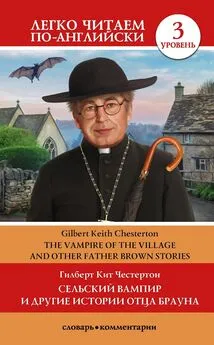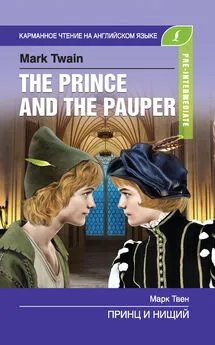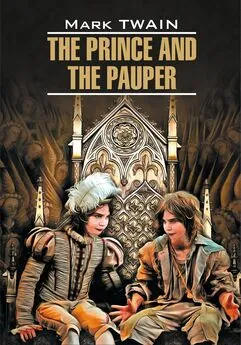Oscar Wilde - The Happy Prince and Ohter Tales
- Название:The Happy Prince and Ohter Tales
- Автор:
- Жанр:
- Издательство:неизвестно
- Год:неизвестен
- ISBN:нет данных
- Рейтинг:
- Избранное:Добавить в избранное
-
Отзывы:
-
Ваша оценка:
Oscar Wilde - The Happy Prince and Ohter Tales краткое содержание
The Happy Prince and Ohter Tales - читать онлайн бесплатно полную версию (весь текст целиком)
Интервал:
Закладка:
“My own garden (мой собственный сад) is my own garden (это мой собственный сад) ,” said the Giant (сказал Великан) ; “any one can understand that (это каждый может понять) , and I will allow nobody (и я не позволю никому; to allow — позволять, разрешать) to play in it (играть в нем) but myself (кроме себя самого; but — за исключением, кроме) .” So he built a high wall (и он построил высокую стену; to build (built) ) all round it (со всех сторон вокруг него = обнес его /сад/ высокой стеной; all around — повсюду) , and put up a notice-board (и установил доску с объявлением; to put up — поднимать; строить, возводить; notice — извещение, объявление; board — доска) .
TRESPASSERS WILL BE PROSECUTED (Вход Строго Воспрещен)
(trespassers will be prosecuted — нарушители будут преследоваться; trespasser — правонарушитель, лицо, нарушающее право владения; to prosecute — вести, проводить; преследовать в судебном или уголовном порядке)
He was a very selfish Giant (он был очень эгоистичным Великаном) .
notice-board ['nəυtisbO:d ] trespasser ['trespəsə ] prosecute ['prOsikju:t ]
“My own garden is my own garden,” said the Giant; “any one can understand that, and I will allow nobody to play in it but myself.” So he built a high wall all round it, and put up a notice-board.
TRESPASSERSWILL BEPROSECUTED
He was a very selfish Giant.
The poor children had now nowhere to play (бедным детям теперь негде было играть) . They tried to play on the road (они попытались играть на дороге; to try — пытаться, стараться) , but the road was very dusty (но дорога была очень пыльной, dust — пыль) and full of hard stones (и полна жестких камней; full — полный, наполненный; hard — твердый, жесткий) , and they did not like it (и она /дорога/ им не понравилась) . They used to wander round the high wall (они, бывало, бродили вокруг высокой стены; to use — употреблять, пользоваться; to use + инфинитив другого глагола — иметь /в прошлом/ обыкновение делать что-либо) when their lessons were over (когда /их/ уроки были окончены = после уроков; to be over — окончиться, завершиться) , and talk about the beautiful garden inside (и разговаривали о красивом саде за забором: «внутри») . “How happy we were there (как счастливы мы были там) ,” they said to each other (говорили они друг другу) .
nowhere ['nəυweə ] dusty['dλsti] wander ['wOndə ]
The poor children had now nowhere to play. They tried to play on the road, but the road was very dusty and full of hard stones, and they did not like it. They used to wander round the high wall when their lessons were over, and talk about the beautiful garden inside. “How happy we were there,” they said to each other.
Then the Spring came (затем пришла Весна) , and all over the country (и по всей стране) there were little blossoms (появились: «были» маленькие цветы) and little birds (и маленькие птички) . Only in the garden of the Selfish Giant (только в саду Великана-Эгоиста: «эгоистичного великана») it was still winter (все еще была зима) . The birds did not care to sing in it (птички не хотели петь в нем; to care — заботиться, беспокоиться; иметь желание, хотеть) as there were no children (так как там не было детей) , and the trees forgot to blossom (и деревья забыли расцвести; to forget (forgot, forgotten)) . Once a beautiful flower (однажды прекрасный цветок) put its head out from the grass (поднял свою головку над травой: «из травы»; to put out — вытягивать, высовывать) , but when it saw the notice-board (но когда он заметил: «увидел» доску с объявлением; to see (saw, seen)) it was so sorry for the children (ему так стало жаль детей; sorry — огорченный, сожалеющий) that it slipped back into the ground again (что он снова вернулся: «скользнул» обратно под землю; to slip — скользить, двигаться тихо) , and went off to sleep (и забылся сном; to go off — уходить, уезжать; впадать в какое-либо состояние) .
care [keq] grass [grα:s ] ground [graυnd ]
Then the Spring came, and all over the country there were little blossoms and little birds. Only in the garden of the Selfish Giant it was still winter. The birds did not care to sing in it as there were no children, and the trees forgot to blossom. Once a beautiful flower put its head out from the grass, but when it saw the notice-board it was so sorry for the children that it slipped back into the ground again, and went off to sleep.
The only people who were pleased (единственные /существа/, которые были довольны; people — народ, люди; собир. существа) were the Snow and the Frost (/были/ Снег и Мороз) . “Spring has forgotten this garden (Весна забыла про этот сад) ,” they cried (кричали они) , “so we will live here (поэтому мы будем жить здесь) all the year round (круглый год) .” The Snow covered up the grass (Снег покрыл траву) with her great white cloak (своим толстым белым покровом; cloak — накидка, плащ; покров) , and the Frost painted all the trees silver (и Мороз посеребрил все деревья: «раскрасил все деревья серебром») . Then they invited the North Wind (затем они пригласили Северный Ветер) to stay with them (погостить с ними) , and he came (и он прибыл; to come (came, come) — приходить ). He was wrapped in furs (он был закутан в меха; to wrap — окутывать, укутывать) , and he roared all day about the garden (и он ревел целый день по саду; about — зд. указывает на движение в разных направлениях по какой-либо ограниченной территории — взад и вперед) , and blew the chimney-pots down (и сдувал колпаки с дымовых труб; to blow (blew, blown) — дуть, веять /о ветре/; chimney-pots = chimney-cap, chimney — дымовая труба, дымоход, cap — шапка, головной убор) .
cloak [kləυk ] wrap [ræp ] fur [fə:] chimney['t∫imni]
The only people who were pleased were the Snow and the Frost. “Spring has forgotten this garden,” they cried, “so we will live here all the year round.” The Snow covered up the grass with her great white cloak, and the Frost painted all the trees silver. Then they invited the North Wind to stay with them, and he came. He was wrapped in furs, and he roared all day about the garden, and blew the chimney-pots down.
“This is a delightful spot (это восхитительное место; delight — восторг, восхищение; spot — пятно; место, местность) ,” he said, “we must ask the Hail on a visit (мы должны пригласить Град в гости: «с визитом»; to ask — спрашивать; приглашать) .” So the Hail came (тогда прибыл Град) . Every day for three hours (каждый день в течение трех часов) he rattled on the roof of the castle (он трещал/грохотал по крыше замка) till he broke most of the slates (пока он не разломал большинство черепицы: «шиферных плиток»; to break (broke, broken); slate — шиферный сланец, шифер) , and then he ran round and round the garden (и затем он бегал по саду кругами; to run (ran, run) round — бегать по кругу) as fast as he could go (так быстро, как он /только/ мог) . He was dressed in grey (он был одет во /все/ серое; to dress — одевать(ся), наряжать(ся)) , and his breath was like ice (и его дыхание было похоже на лед) .
hail [heil ] castle ['kα:s(ə)l] breath[breθ]
“This is a delightful spot,” he said, “we must ask the Hail on a visit.” So the Hail came. Every day for three hours he rattled on the roof of the castle till he broke most of the slates, and then he ran round and round the garden as fast as he could go. He was dressed in grey, and his breath was like ice.
“I cannot understand (я не могу понять) why the Spring is so late in coming (почему Весна так опаздывает с приходом; late — опоздавший, поздний) ,” said the Selfish Giant (говорил Великан-Эгоист) , as he sat at the window (пока он сидел у окна; to sit (sat) ) and looked out at his cold white garden (и выглядывал в свой холодный белый сад) ; “I hope (я надеюсь) there will be a change in the weather (что погода перемениться: «что в погоде будет перемена»; change — перемена, изменение) .”
Читать дальшеИнтервал:
Закладка:
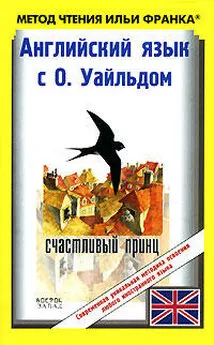
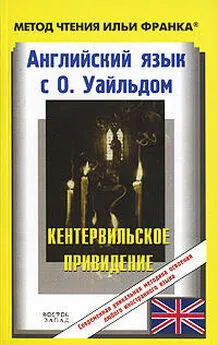
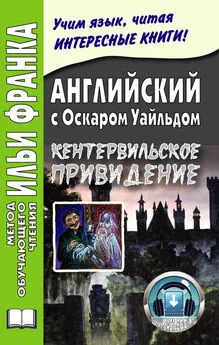
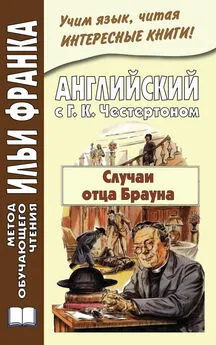
![О Генри - Принцесса и пума [The Princess and the Puma]](/books/1076182/o-genri-princessa-i-puma-the-princess-and-the-pum.webp)
